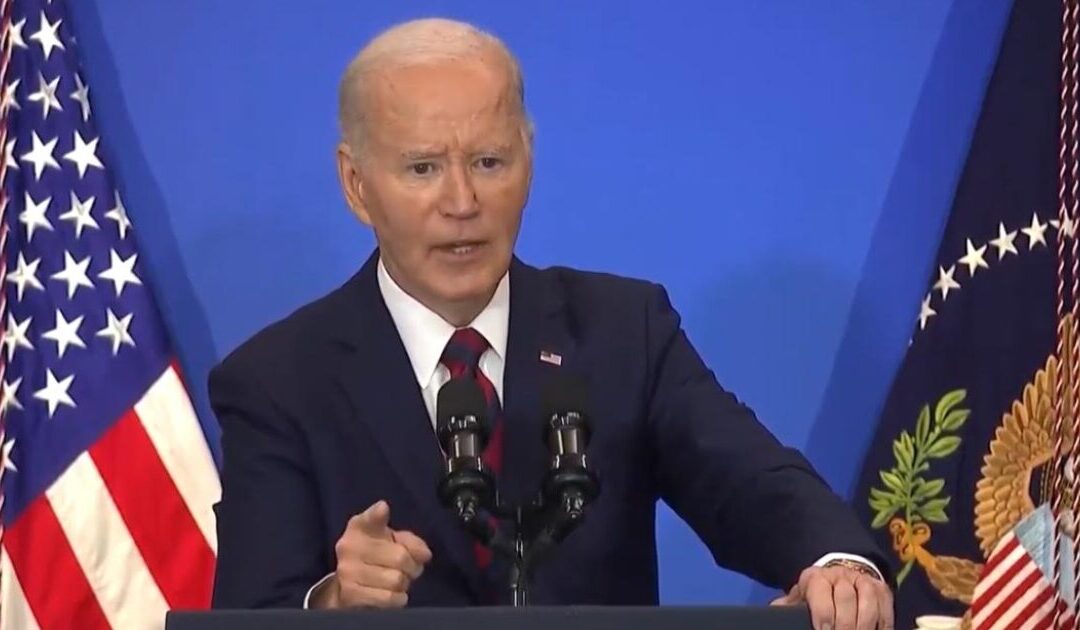Too Little, Too Late, By Biden on Iran
December 20, 2024
This story originally was published by Real Clear Wire
By Janatan Sayeh , Behnam Ben Taleblu , Saeed Ghasseminejad
Real Clear Wire
President Biden pulled punches when enforcing oil sanctions against Iran. Forsaking the leverage inherited from President Trump’s “maximum pressure,” Biden opted for “maximum deference” from the get-go, and with clearly disastrous results.
Not only is there no deal in place today constraining Iran’s nuclear program, but Tehran’s theocrats have used oil export revenues – an estimated at $144 billion of which was earned during Biden’s first three years – to underwrite the cycle violence currently engulfing the Middle East.
While a recent sanctions package targeting Iran’s illicit oil sales and smuggling network earlier this December is welcome news, it is too little, too late, to salvage Biden’s Iran policy.
The latest sanctions are far-reaching, targeting 21 vessels operating under 10 different flags as well as 14 companies across 13 different countries. The penalties followed an earlier round of designations aimed at both responding to Iran’s October ballistic missile barrage against Israel and tightening crude oil and petrochemical sanctions. Both measures focused on the regime’s so-called “ghost fleet” which engages in dangerous and deceptive practices on the high seas to get sanctioned Iranian commodities to buyers in Asia.
Iran’s use of “ghost fleets”—an expensive network of vessels masking their identities— has reportedly surged, increasing fourfold between 2020 and 2023. These vessels employ evasive tactics such as disabling their transponders, repainting hulls, and changing flags. With its partner Russia facing mounting sanctions over its war against Ukraine, Tehran extended its sanctions busting expertise to bail out Moscow. Both countries have adopted shadow fleets, utilizing ship-to-ship transfers, blending oil, and using shell companies to obscure operations.
Addressing the challenge posed by Iran’s “ghost fleet” and illicit trade is crucial, but so too is developing a more comprehensive strategy to squeeze the regime’s exports. Trump’s maximum pressure policy reduced Iranian oil exports from 2.9 million barrels per day in April 2018 to around 400,000 in 2020.
However, under the Biden administration, lenient sanctions enforcement starting in mid-2022 enabled Iran’s oil exports—particularly to China—to surge, with revenues swelling from $16 billion in 2020 to $53 billion by 2023, according to data from the U.S. government’s Energy Information Agency. These concession failed to induce Iran to negotiate in good faith.
Worse, over the last four years, Iran has used funds generated through sanctions evasion to significantly advance its nuclear, missile, and regional military ambitions. It has accumulated more 60 percent enriched uranium, including at its subterranean Fordow facility. Continued amassment of 60 percent highly enriched uranium puts Tehran in the prime position to enrich to weapons grade, should it choose to do so.
Simultaneously, Tehran has evolved into a global arms salesman as well as proliferator, bolstering production lines for missiles and drones that have been deployed in various combat zones, including Russia’s war against Ukraine, assaults on Israel, and conflicts in Ethiopia and Sudan. Iranian anti-ship capabilities bolster Houthi attacks on international shipping in the Red Sea, and Iranian arms and financing have underwritten a reported181 attacks by Shiite militias against U.S. positions in Iraq, Syria, and Jordan since October 2023.
Politically however, the latest designations by the Biden administration can serve as a springboard to intensifying maximum pressure on Iran by the incoming Trump administration. Just as green-lighting Ukraine’s use of long-range missiles like ATACMS against Russian territory strengthens Trump’s hand in negotiations with President Putin, these designations can lay the groundwork for a more coercive U.S. policy against Iran’s nuclear program predicated on disarmament and rollback.
To develop this leverage, Trump will need to continue targeting tankers and fully enforcing oil and petrochemical sanctions, but this action alone is insufficient to disrupt the illicit Iran-China oil trade, which features a growing Malaysian nexus. Equally important is the need to halt Iran’s major non-oil trade with countries like Turkey, Iraq, and the UAE, that play a significant role in Iran’s economy.
To that end, the industrial metals sector, which accounts for 20% of Iran’s non-oil exports and plays a significant role in bolstering the regime’s military programs, will need to come under the sights of the incoming Trump administration. In its first term, the Trump administration expanded sanctions against these sectors, and should now be grown to include metals like nickel and lithium, as well as zinc. China, Iraq, and Turkey are key destinations for these exports, and U.S. handholding and arm-twisting with these nations will be key to any effort to limit or end their imports.
The outgoing Biden administration’s reluctance has undeniably complicated restraining Tehran’s nuclear ambitions and regional destabilization. Should the incoming Trump administration commit to reinstituting a maximum pressure strategy, a course correction would begin by enforcing existing penalties and strategic sectors enabling the Islamic Republic to generate revenues upon assuming office.
Janatan Sayeh is a research analyst at the Foundation for Defense of Democracies (FDD) in Washington DC, where Behnam Ben Taleblu is a senior director, and Saeed Ghasseminejadis a senior advisor. All three contribute to FDD’s Iran program.
The post Too Little, Too Late, By Biden on Iran appeared first on The Gateway Pundit.
Go to Source
Author: Guest Contributor

